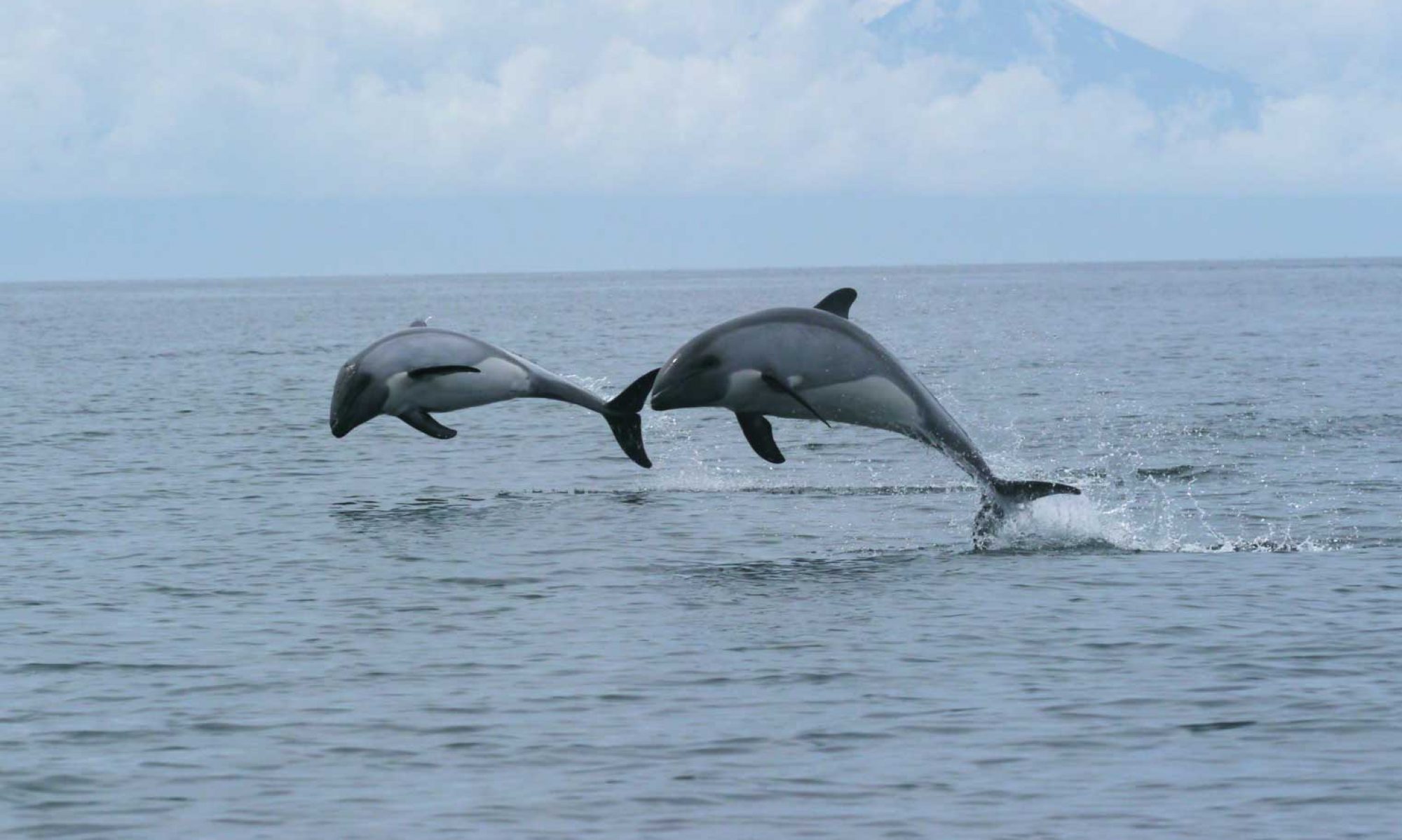Professor Enrique A. Crespo
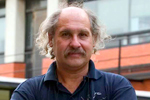
Prof. Enrique A. Crespo received his PhD from the University of Buenos Aires in 1988. He is currently a senior researcher at the National Scientific and Technical Research Council of Argentina and professor of ecology at the University of Patagonia. He has been a member of the Cetacean Specialist Group (SSC, IUCN) since 1987 and species conservation coordinator for Latin America since 1997. He has been a consultant to UNEP and UNDP. He has participated in research and conservation projects in South America and Europe and has received 44 national and international grants from many organizations for research, the organization of conferences and workshops, and the training of staff. He was deputy director of the Centro Nacional Patagónico. He has been an advisor to 7 doctoral students (+ 7 in progress), 2 master's students, and 23 undergraduate students. He is the author or co-author of 61 scientific articles on marine mammals in the region, published in international journals, 23 book chapters, and many working papers and technical reports for international conferences. He was invited to join the Scientific Committee of the International Whaling Commission and is co-author of the Action Plan for the Conservation of the World's Whales and Dolphins, 2002-2010. He has organized numerous conferences and workshops to address marine mammal conservation issues at the regional level for the Franciscana, South American sea lions, and other seabirds and mammals of the Patagonian Sea, and has been on the advisory board of YAQU PACHA since its founding in 1992.
Dr. Sonja Heinrich
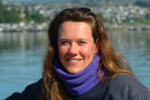
Sonja is a marine biologist at the University of St Andrews in Scotland, where she organizes and teaches a globally unique master's course in marine mammalogy. Her research interests include population estimation, the distribution and coexistence of overlapping species, habitat conservation, and the protection of seals and whales, particularly small coastal whales. Sonja completed her studies at the University of Cologne (biology) and the University of Otago (New Zealand) with degrees in zoology and marine science (master's). In New Zealand, she studied population dynamics, behavior, and the impact of tourism on a rare native sea lion population. She then completed her PhD at the University of St Andrews (UK), with a research project in South America. As part of her doctoral thesis, she founded the Chiloé Dolphin (small whale) Project in the Chiloé Archipelago in southern Chile in 2000, which she still heads today. The Chiloé Project has successfully developed into the first long-term study of the environmental ecology of Chilean dolphins, Peale's dolphins, and Burmeister's porpoises in a region where intensive salmon and mussel farming is causing many sustainable ecological and social problems. Project results, such as determining the population sizes of dolphin species, their site fidelity, habitat use, and the effects of negative human influences on the ecology of native species, contribute significantly to the designation of important protected areas and the creation of coastal use plans. Sonja regularly supervises student work, participates in scientific conferences, and advises government and private organizations on environmental protection issues related to whales and dolphins. When teaching and research at the university allow her some free time, Sonja enjoys giving lectures on small cruise ships and guiding tour groups in the Arctic and Antarctic. She is the founder of YAQU PACHA Chile and has been on the YAQU PACHA advisory board for over 20 years.
Professor Marila Lázaro
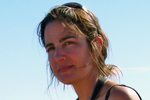
Marila is a professor in the Department of Science and Development at the Faculty of Natural Sciences in Montevideo, Uruguay, and has been a member of our advisory board for many years. As a biologist, she has conducted studies on the ethology and population structure of marine mammals. She has also carried out an environmental education project with children of small-scale fishermen to raise awareness of the accidental capture of the Franciscana dolphin (Pontoporia blainvillei). She holds a PhD in Philosophy, Science, Technology, and Society from the University of the Basque Country. The topic of her doctoral thesis is: "The culture of science and social participation in environmental issues." Marila has supervised nine undergraduate students (+ one in progress), is supervising two master's students in the field of environmental education and ethics, and is a member of the first doctoral committee on the human dimension of natural resource conservation and management. She coordinated a consensus conference on nuclear energy in Uruguay (2010), a mechanism for public participation in science and technology. Marila is the founder of SIMURG, a non-governmental organization that promotes the social appropriation of science and art through projects that encourage citizen participation in the creation and use of knowledge. She is a member of the regional advisory committees of the Global Greengrants Fund and has long been on the advisory board of YAQU PACHA.
Professor Eduardo Secchi
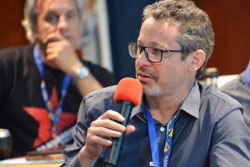
In 1989, I was in my second year of studying oceanography and decided to devote myself to researching marine mammals. At the end of 1991, I graduated from the Universidade Federal do Rio Grande FURG (Federal University of Rio Grande) in Rio Grande, southern Brazil. From 1991 to 1999, I was head of the Marine Mammal Laboratory atthe Museu Oceanográfico(Oceanographic Museum) of FURG. Since 1992/93, I have been leading a long-term project to assess the impact of bycatch on the Franciscana dolphin. Both my master's degree (1999 at FURG) and my doctorate (2006 at the University of Otago in New Zealand) and my postdoctoral fellowship at Flinders University (Australia – 2014) focused on the population dynamics and viability of the Franciscana. For this research, I was awarded first prize for the best research on the conservation of aquatic mammals in South America in 2000 and the Oliver Peason's Award from the American Society for Mammalogy in 2007. In parallel, I have led several research projects on the ecology and conservation of other marine megafauna species and their ecosystems in Brazil and Antarctica. These medium- and long-term projects have resulted in more than 160 publications in peer-reviewed journals and many other non-peer-reviewed works. These publications have contributed to genetics, population dynamics, fishery interactions, stock identity, modeling, and other areas relevant to the conservation of these species and their habitat. My medium-term goal is to propose measures to reduce the impact of fishing-related mortality on the fate of Franciscana and other coastal whale populations, while enabling local communities to secure their livelihoods through responsible use of natural resources (in this case, fish). My long-term goal is to better understand the dynamics, habitat requirements, and threats to other marine megafauna species and to identify trends in Franciscana and other species. My primary goal on the advisory board is to build capacity in the area of human resources. Since 2006, I have been a professor at the Institute of Oceanography at FURG. I also head the Laboratory of Ecology and Conservation of Marine Megafauna (ECOMEGA) at the same university, where I have supervised several students from Brazil, Argentina, and Uruguay at the undergraduate, master's, doctoral, and postdoctoral levels. From 2002 to 2007, I was editor-in-chief (now editor emeritus) of the Latin American Journal of Aquatic Mammals and serve as an ad hoc reviewer for many scientific journals in Brazil and abroad. I was president of the Latin American Society for Aquatic Mammals – SOLAMAC (2015-2016). I have been a member of the Cetacean Specialist Group of the International Union for Conservation of Nature (IUCN) since 1997, a Level 1 Research Fellow of the Brazilian Council for Scientific and Technological Development, Vice-Rector for Research and Graduate Studies at FURG since 2017, and currently Chair of the Conservation Committee of the Society for Marine Mammalogy. I have been on the advisory board of YAQU PACHA for many years.
Dr. Alexandre N. Zerbini
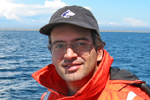
Dr. Alexandre N. Zerbini holds a B.Sc. in Biological Oceanography (1992) from the University of Rio Grande, Brazil; an M.S. in Zoology (1998) from the University of São Paulo, Brazil; and a Ph.D. in Fisheries and Aquatic Sciences (2006) from the University of Washington, USA. He worked as a marine mammal biologist at the Prof. Eliézer de Carvalho RiosOceanographic Museumin southern Brazil (1992-1995) and was an adjunct professor at the Institute of Marine Sciences at the University of Itajaí (1996-1999), where he taught a course on marine mammal biology and ecology. He has published more than 45 scientific papers and book chapters and has participated in or coordinated research projects in Brazil, Antarctica, the United States, the Cook Islands, New Caledonia, and the Caribbean. Zerbini is currently a research fellow at the National Marine Mammal Laboratory, Alaska Fisheries Science Center, NOAA in Seattle, USA. He is also scientific director of Instituto Aqualie, a non-profit organization in Brazil. Zerbini was an advisor to the Brazilian Environmental Agency in 1998-99 and has been a member of the IUCN Specialist Group on Cetaceans since 1998 and a member of the Scientific Committee of the International Whaling Commission since 2000. He is a member of the Society for Marine Mammalogy and the Latin American Society for Aquatic Mammals, an editorial board member of the Latin American Journal of Aquatic Mammals, a reviewer for various international journals and research organizations, and an advisory board member of YAQU PACHA.
Conferences and workshops | Bottlenose Dolphin Project | Latin America Team | Membership
